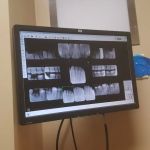Tooth Repair Care: How to Properly Care for Your Teeth After a Repair
- 1. Understanding Tooth Repair and Its Importance
- 2. Immediate Care After a Tooth Repair
- 3. Long-Term Tooth Repair Maintenance
- 4. Common Challenges and Solutions in Tooth Repair Care
- 5. When to Seek Professional Help for Tooth Repair
- 6. Conclusion: Protect Your Tooth Repair with Proper Care
1. Understanding Tooth Repair and Its Importance
Tooth repair is a crucial dental procedure that helps restore damaged or decayed teeth, ensuring your oral health remains intact. Whether you’ve had a filling, crown, or root canal, proper care after the procedure is essential to avoid complications and promote healing. Neglecting post-repair care can result in infections, tooth sensitivity, or even the need for additional dental work.
Understanding the type of repair and the care required afterward is key to maintaining your tooth’s integrity and avoiding discomfort. Each type of tooth repair comes with its own specific set of care instructions, and following these guidelines will help ensure a smooth recovery.
2. Immediate Care After a Tooth Repair
After a tooth repair procedure, it’s essential to follow immediate care instructions to allow the tooth to heal properly. Here are some immediate care tips to follow:
- Avoid Eating Hard Foods: For the first 24-48 hours, avoid chewing hard foods on the repaired tooth. Soft foods like yogurt, mashed potatoes, and smoothies are ideal for the initial recovery phase.
- Manage Pain and Discomfort: It’s normal to experience some pain or sensitivity after the procedure. Use over-the-counter pain relievers as recommended by your dentist, and apply a cold compress to reduce swelling.
- Rinse with Warm Salt Water: After 24 hours, rinse your mouth with warm salt water to help reduce inflammation and promote healing. Avoid alcohol-based mouthwashes, as they can irritate the area.
These immediate care steps are critical to helping your tooth repair heal effectively and prevent unnecessary complications during the early stages of recovery.
3. Long-Term Tooth Repair Maintenance
Proper long-term care is essential for maintaining the integrity of your tooth repair. Here are some steps you can take to ensure your repaired tooth stays in good condition:
- Regular Brushing and Flossing: Brush your teeth at least twice a day with a soft-bristled toothbrush, and floss daily. Pay special attention to the area around the repaired tooth, ensuring it remains clean to prevent plaque buildup.
- Avoid Excessive Pressure on the Tooth: Be mindful of your chewing habits, especially on the repaired tooth. Avoid grinding your teeth, as this can damage the repair or cause the filling to crack.
- Follow-up Dental Visits: Schedule regular dental check-ups to ensure the repaired tooth is healing correctly. Your dentist may want to monitor the repair during routine visits and take any necessary preventative measures.
By maintaining a good oral hygiene routine and attending regular check-ups, you can ensure your repaired tooth remains functional and healthy for years to come.
4. Common Challenges and Solutions in Tooth Repair Care
While caring for a repaired tooth is generally straightforward, there are some challenges that may arise. Let’s take a look at some of the most common issues and how to address them:
- Sensitivity to Temperature: It’s common for a repaired tooth to be sensitive to hot or cold foods and drinks. This sensitivity typically decreases over time. In the meantime, avoid extreme temperature changes and use toothpaste designed for sensitive teeth.
- Chipped or Broken Fillings: If your filling or crown becomes loose or damaged, contact your dentist immediately for repair. Avoid chewing on hard objects like ice or candy to prevent further damage.
- Gum Irritation: If you notice irritation or swelling around the repaired tooth, it could indicate an infection or irritation from the procedure. Rinse with warm salt water and seek professional advice if the issue persists.
By staying vigilant and following the care recommendations, you can minimize the impact of these challenges and ensure your tooth repair remains in top shape.
5. When to Seek Professional Help for Tooth Repair
If you experience severe pain, swelling, or discomfort that doesn’t subside after a few days, it may indicate a complication with your tooth repair. In these cases, it’s crucial to seek professional help. Additionally, if you notice any changes in the appearance or functionality of the repaired tooth, such as difficulty chewing or a loose filling, don’t hesitate to contact your dentist.
Early intervention can help prevent further damage and ensure your tooth repair lasts longer. Remember, your dentist is your best resource for advice and treatment during the recovery process.
6. Conclusion: Protect Your Tooth Repair with Proper Care
Taking care of your tooth repair is vital to ensuring its long-term success. By following the immediate and long-term care tips outlined above, you can protect your repaired tooth and enjoy a healthy, functional smile. If you have any questions or need professional advice, Dentistry Toothtruth is here to help.
Ready to ensure the health of your repaired tooth? Visit Dentistry Toothtruth for more information on dental care and repair services!







 Pacific Northwest Orthodontics5.0 (1 review)
Pacific Northwest Orthodontics5.0 (1 review) West Coast Dental of South Gate3.0 (495 review)
West Coast Dental of South Gate3.0 (495 review) Highland Dental Clinic: Dr. Robert Klein5.0 (7 review)
Highland Dental Clinic: Dr. Robert Klein5.0 (7 review) ACE DENTAL4.0 (4 review)
ACE DENTAL4.0 (4 review) William H Johnson II DDS--DENTISTRY AT CENTRAL MIDWAY5.0 (7 review)
William H Johnson II DDS--DENTISTRY AT CENTRAL MIDWAY5.0 (7 review) Gentry Dentistry4.0 (164 review)
Gentry Dentistry4.0 (164 review) The Importance of Oral Health Education During Pregnancy for a Healthy Pregnancy
The Importance of Oral Health Education During Pregnancy for a Healthy Pregnancy Best Tips for Brushing Your Teeth Properly for Healthy Gums: Essential Techniques for Oral Health
Best Tips for Brushing Your Teeth Properly for Healthy Gums: Essential Techniques for Oral Health Why Skipping Dental Checkups Can Lead to Bigger Oral Health Problems
Why Skipping Dental Checkups Can Lead to Bigger Oral Health Problems Advantages of Porcelain Dental Restorations
Advantages of Porcelain Dental Restorations How Can Diabetes Cause Tooth and Gum Problems? Preventing and Managing Oral Health Issues
How Can Diabetes Cause Tooth and Gum Problems? Preventing and Managing Oral Health Issues Healthy Habits for Promoting Good Oral Health and Hygiene: Tips for a Healthy Smile
Healthy Habits for Promoting Good Oral Health and Hygiene: Tips for a Healthy Smile